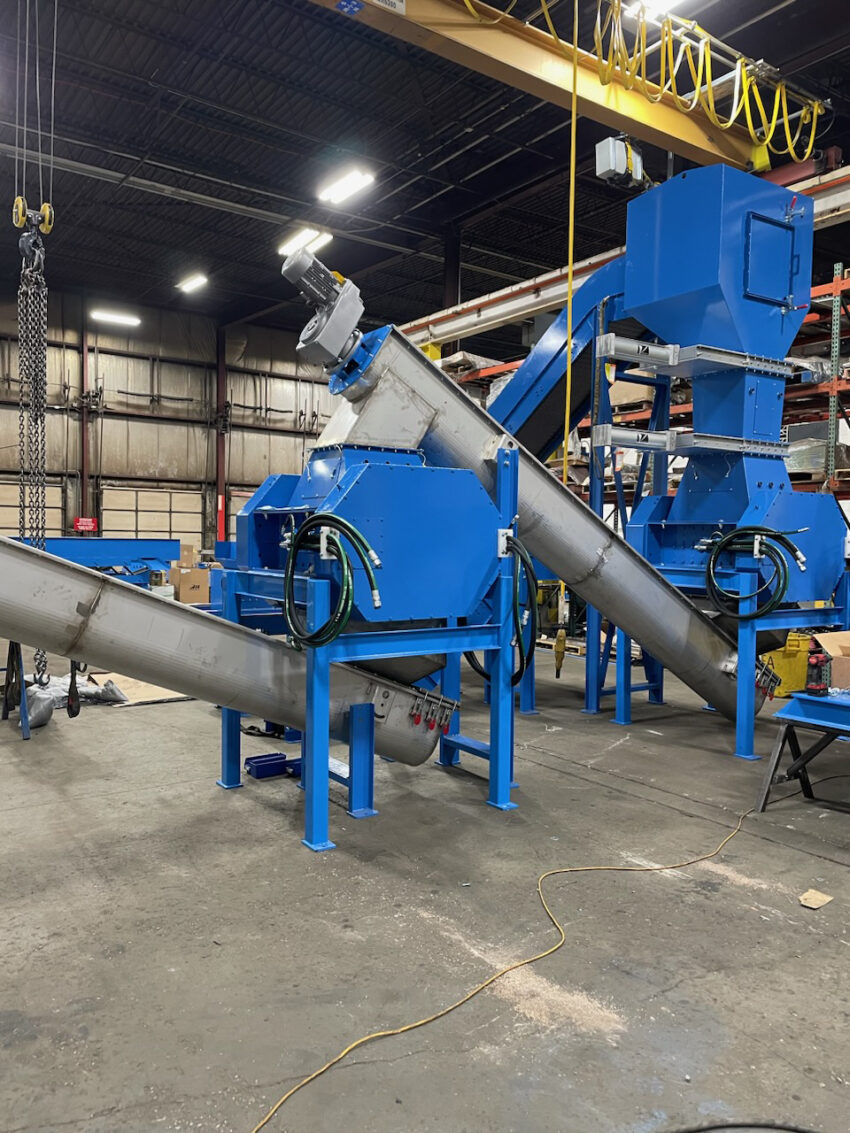BCA’s creation of a Li-ion and LiFePO4 focused division, along with the availability of a complete system of complementary recycling technologies, increases material recovery and resale value
Milwaukee, WI-based BCA Industries, an OEM with decades of experience that provides turnkey, closed loop, recycling systems, has formed a division called LithiBatt which is now providing complete lithium ion (Li-ion) and lithium iron phosphate (LiFePO4) battery recycling systems in collaboration with leading global partners.
The turnkey systems offer various processing outcomes that include options for progressively smaller sizes of material shredding, as well as additional processing steps to generate higher value, battery-grade precursor cathode active material (pCAM) and “black mass,” which contains high amounts of graphite, lithium, manganese, cobalt, and nickel metals. These systems are designed to address the extraordinary safety requirements and proper VOC extraction needed.
“With primary, secondary, and downstream equipment, Li-ion batteries of all sizes and chemistries can be quickly and profitably reduced into valuable, reusable, or saleable materials without disassembly. This type of flexible system can recycle tons of Li-ion material per hour to whatever sellable state the customer requires,” says John Neuens, industrial consultant for LithiBatt.
The company is collaborating with other industry leaders to integrate complementary recycling technologies that maximize the value of recoverable materials and reduce operational costs. LithiBatt is currently installing several systems in Germany and the U.S. for the largest battery recycling company in the world. Further to that, LithiBatt was chosen by and is now building systems for the largest EV manufacturer in the world.
Additionally, LithiBatt is partnering with Green Li-ion, a lithium-ion battery recycling technology company based in the U.S., Europe, Australia, and Singapore. Green Li-ion has developed a novel technology that processes all the valuable elements present in the black mass materials of all used lithium batteries. The technology and process enable the recycling of all metals to directly remanufacture battery-grade cathode material ready for reuse in new batteries.
To accelerate Li-ion battery recycling market growth, LithiBatt has applied for a U.S. Department of Energy (DOE) grant to build a demonstration facility that allows manufacturers and recyclers to see the process in action, obtain test data, and fully understand what they are purchasing. This recycling technology is already being profitably used at a facility in Germany and more are on the way throughout Europe.
Within the grant request, the company would set up a full demonstration facility in North America so the Li-ion battery recycling system technology can be more widely shared.
“We plan to set up a demonstration plant where people can run their material, gather data on the recycling system, and then purchase it either in whole or in part – knowing that it will be fully functional for them,” says Neuens.
The demonstration project is intended to accelerate recycling technology adoption, according to Neuens.
“If there is no return on investment, no one is going to implement it. So, the demo plant will allow manufacturers and recyclers to gather real-time, recycling data at volume before deciding to buy primary, secondary, or downstream equipment to cost-effectively process all the way down to pCAM,” concludes Neuens.
For more information: call 414-353-1002; fax 414-353-1003; email john@bca-industries.com; visit www.bca-industries.com; or write to BCA Industries, 7036 N Teutonia Ave., Milwaukee, WI 53209.

